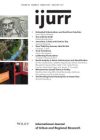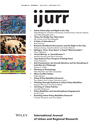In urban planning, inclusion is not necessarily achieved by increasing opportunities for deliberation between planners and residents, as power and exclusion reside in the process of deliberation, especially in the rigid spaces of formal planning hearings. Planners’ professional jargon may remain inaccessible to residents, who grasp their living environment in terms of the flow of sensory and social interactions. So the framework of instrumental rationality may exclude softer, yet meaningful, local stories. What is needed in urban planning is a sensitivity for the plurality of these stories. In this article we propose that applied drama methods could provide a novel model for deliberative planning, in order to surpass the silo thinking of instrumental rationality, and ingrained, taken-for-granted concepts and identities, by artistic and affective means of argumentation. Furthermore, it seems that residents gain access to the embodied understanding of different trajectories of meaning making by playing the roles of other residents. Drama may provide a channel of expression that helps people move beyond the antagonistic posturing between stakeholders, as well as an empowering way to express the plurality of stories in neighbourhood spaces.
Details
Written by:
Päivi Rannila and Tikli Loivaranta
Digital Object Identifier (DOI)
10.1111/1468-2427.12214
About DOI

